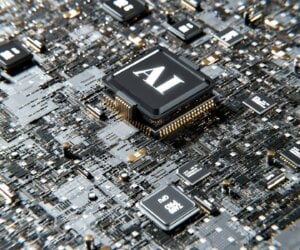The Era of AI PCs: How Artificial Intelligence Is Redefining Personal Computing

Artificial intelligence is no longer limited to the cloud—it’s arriving directly on everyday laptops and desktops. This new wave of AI PCs, powered by advanced chips from Intel, AMD, Qualcomm, and Apple, alongside Microsoft’s Copilot+ initiative, is transforming how computers think, learn, and interact with users.
What Is an AI PC?
An AI PC is a computer built to handle artificial intelligence tasks locally rather than relying solely on cloud services. These systems can power AI features like chatbots, writing tools, real-time translation, and intelligent search—all without an internet connection. The goal is faster response times, improved privacy, and greater personalization.
As AI becomes more deeply integrated, computers will evolve from simple tools into adaptive companions that anticipate needs, streamline workflows, and optimize performance automatically.
The Hardware Behind AI PCs
At the core of this transformation is the Neural Processing Unit (NPU)—a specialized processor designed specifically for AI workloads. Found in the latest chips from AMD, Intel, Qualcomm, and Apple, NPUs handle machine learning and neural network computations far more efficiently than traditional CPUs or GPUs.
Before NPUs, AI tasks relied heavily on graphics processors, which drained power and reduced battery life. NPUs solve this by processing AI tasks at high speed while consuming minimal energy. This makes on-device AI feasible even for thin, lightweight laptops.
AI performance is often measured in TOPS (trillions of operations per second), indicating how many calculations a chip can perform for AI processing. Current high-end processors deliver around 50 TOPS, allowing them to handle complex AI workloads smoothly.
Software: Bringing AI Hardware to Life
Hardware is only part of the equation. The real power of AI PCs comes from software integration:
- Microsoft’s Copilot+ PCs combine AI-ready hardware with Windows 11 features like on-device assistance, content creation tools, and intelligent automation.
- Apple Intelligence blends local and cloud AI to enhance writing, productivity, and Siri’s capabilities across Macs, iPhones, and iPads.
- Google’s ChromeOS integrates AI features such as live transcription and visual enhancements, supported by the Gemini assistant.
Each company is shaping its vision of the AI PC, making this an intensely competitive and fast-evolving space.
Real-World AI Features
AI PCs already deliver practical, everyday benefits:
- Generative AI tools can summarize text, rewrite content, or create visuals directly on your device.
- Real-time captioning and translation make communication seamless across languages.
- Intelligent recall and search features, like Microsoft’s Recall, let users retrieve past information using natural language rather than file names.
- Personalized AI assistants can automate routine tasks, helping users stay organized and efficient.
The Future of Personal Computing
AI PCs mark a turning point in technology. As NPUs and AI software evolve, these machines will become increasingly intuitive—able to learn from users, predict needs, and act independently.
The age of the AI PC isn’t just about faster processors; it’s about computers that understand you, adapt to you, and work with you—ushering in a new, intelligent era of personal computing.
Newer Articles
- Grammarly Rebrands as Superhuman, Launches “Superhuman Go” AI Productivity Platform
- Apple Watch’s Blood Oxygen Sensor Returns: Here’s What It Does and How It Works
- U.S. Moves Closer to Banning TP-Link Routers Over National Security Concerns

